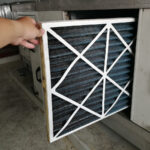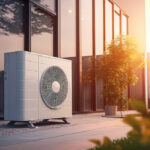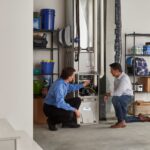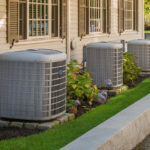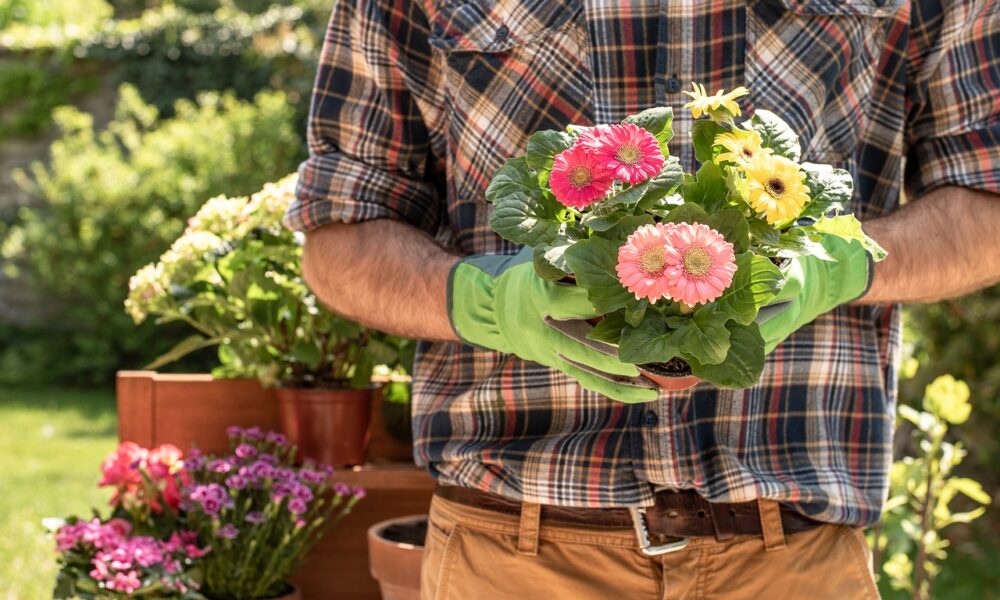
No doubt, Florida is one of the hottest states in the summertime. And with the high humidity, it feels even hotter than other states at the same temperature. But most summers are brutal anywhere you go. And that is one reason a working AC in the home is imperative to survive those months. And if you must work outside for any amount of time, you should know just how to stay cool while working outside. After all, it is for your own safety.
Since not everyone has a swimming pool they can jump into from time to time while working outside, there are some tips you may find valuable. And in the meantime, Veterans AC & Heat is more than happy to keep that HVAC system running in tip-top shape all summer long.
Come in from the heat and rest easy, with Veterans AC & Heat.
Why it is Essential to Stay Cool
If you have ever played sports, you have heard “stay hydrated” all too many times. But, staying hydrated is the most crucial part of working in the summer heat. When fighting those hot temperatures, hydration keeps the body from heat injury like cramps, heat exhaustion, and even heat stroke.
In addition, dehydration can lead to more severe complications such as urinary tract infections, kidney issues. Here are the recommended hydration standards:
· Women: over 2 liters of water, or 9 cups.
· Men: 3 liters of water or 13 cups per day.
Hydration is vital to survival because your body is made up of approximately 60% water. And when you are working outside in the heat, you will need even more than that. And you need it for each and every bodily function. Water flushes toxins from the body, carries nutrients to the cells, aids your joints, and even helps digest your food.
Don’t Risk Dehydration
“Dehydration occurs when you use or lose more fluid than you take in, and your body doesn’t have enough water and other fluids to carry out its normal functions. If you don’t replace lost fluids, you will get dehydrated.” – Mayo Clinic.
And we all know how much water you lose through sweat when working outside in Florida. So, it is a good idea to take note of the signs of dehydration.
· Extreme thirst
· Dark-colored urine
· Less frequent urination
· Fatigue
· Dizziness and Confusion
What Are the Complications of Dehydration?
Severe complications from dehydration can occur pretty quickly if you are not careful. Here is what that may look like.
1. Heat injury may appear in the form of heat cramps all the way to heatstroke.
2. Prolonged or repeated dehydration can lead to urinary and kidney issues like tract infections, kidney stones, and even kidney failure.
3. Seizures can happen when electrolytes dip too low. Those electrolytes are found in potassium and sodium. Then you may experience involuntary muscle contractions and even loss of consciousness.
4. Hypovolemic shock or low blood volume shock is the most serious of the symptoms. Blood pressure drops, and the oxygen in the body decreases.
Reaching any of these states should be taken seriously. First, get inside the air conditioning. Then, cool off with cool compresses, and hydrate when you reach heat injury. But if you experience any of these complications, a trip to the hospital may be necessary.
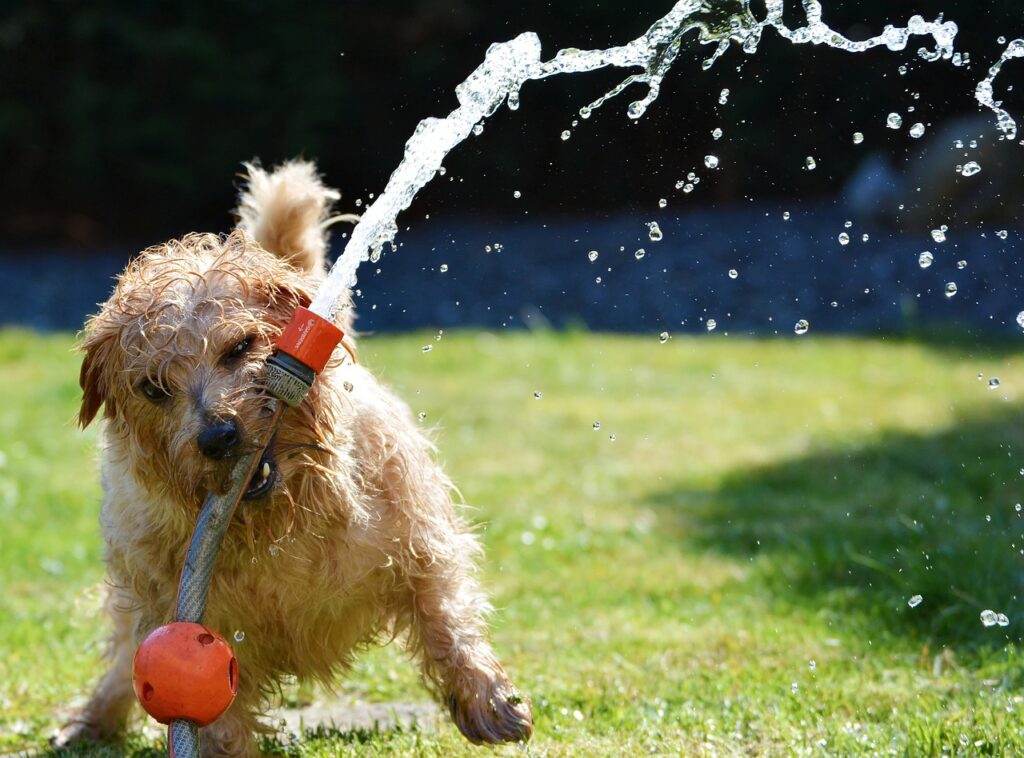
Tips to Stay Cool While Working Outside in Florida
Veterans AC & Heat has a few tips to stay cool while working or playing outside in the summer months. No matter what you are doing outside in Florida, always hydrate in advance. Don’t wait until after you are already feeling sick.
Keep Covered Up
Keep your skin covered while working outside in the heat of the day. Sunscreen is no doubt essential. But you may also want to wear loose-fitting long sleeve sun protection clothes.
Additionally, having a shaded area to retreat to for drinking water is a great way to get a break from the direct sun.
Eat Light Meals
Many people don’t realize that 20% of your body’s water comes from what you eat. So, if you snack on watery leafy greens, celery, fruits, and soups, you increase water consumption. That is good news, right?
Use Misters
Don’t worry. You don’t have to set up a professional misting system like those at theme parks. But having a spray bottle of cool water for your face is a perfect way to get relief. And keep it in the cooler to ensure it stays nice and cold.
Check the Weather Forecast
When you know you have some challenging work to do, an overcast day may be the day for this project. And if you know there will be a summer shower, try working outside just before the rain when the clouds are around. You may not get to work for as long, but you may avoid heat exhaustion.
Try Hot Weather Products
Sporting and outdoor stores have plenty of ideas to keep you cool in the heat. Try things like Frogg Toggs, neck wraps, and cooling bandanas to help deal with the temperature.
Allow Time to Acclimate to Temperature Shifts
Another thing you may not have thought about is that it takes 7 to 14 days for your body to fully accept the temperature changes. Gradually beginning an outside project will allow your body to get used to the temperature change and the extreme heat. Each day, you will be able to stay out a bit longer than the day before, accomplishing your project without heat injury.
Give Yourself Frequent Breaks
We get it. There is nothing like the satisfaction felt when you power through a project and get it completely done. However, this method may just get you in trouble when working outside. So, take breaks for your health’s sake. Have a seat for a few minutes and snack on those watery fruits and veggies. Drink a beverage with electrolytes and perhaps rinse your face and hands-off with a hose. You’ll feel much better.
Bring a Small Cooler Along
No matter where you are in the yard, bringing a small cooler with you is an excellent idea. Pack it with your water, electrolytes, snacks, misting bottle, and a wet hand towel for wiping your face.
If you utilize these tips while working outside, you should be able to complete that project. And you will do it without making yourself sick.
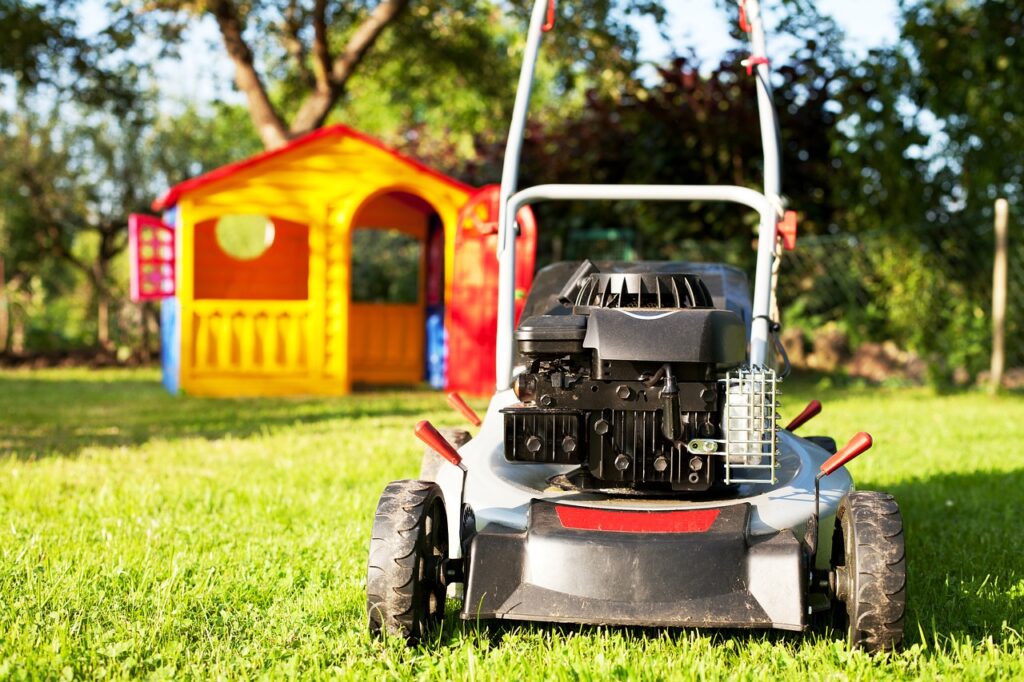
How You Can Help Keep the House Cool in the Summer
In addition to keeping your body temperature cool when working outside in Florida, you will want a place to retreat to. So, did you know there are some things you can do to help keep the cool air in and the heat out?
Clearly, if your AC is having difficulty keeping up, the cool air could be escaping. There are a few things you can try before calling out your professional HVAC technician. Here are several small things you can try that may seem simple but will make a big difference in your home’s temperature.
The Home’s Windows
Start by closing your window treatments during the day when the sun is out. “It sounds basic, but if the sun comes in through your windows, it’s going to make your house warm. Using things like window coverings to their full advantage in the middle of the day can keep your house cooler by keeping that sunlight from coming in, particularly if you are gone during the day, and in rooms that face west or south”, says NBC News.
Set Your Thermostat
In Florida, that afternoon sun builds up heat in the home, but it will cool when the sun goes down. Chances are, there are times of the day when you are still hot in the house even though the AC is running. Therefore, setting your thermostat to adjust to those hours will ensure you do not freeze the unit (and your family) in the evening.
What’s more, if you are not home during the day, turn your thermostat up a few degrees, so it isn’t running so hard, and you save some money on your electric bill. Try 76 to 78 degrees for a good starting average, so you do not overwork the unit when you return home.
Use Those Fans
Ceiling Fans
Turn your ceiling fans in a counterclockwise direction. Doing this will create a literal wind-chill effect that should allow you to set your thermostat about 4 degrees higher than usual. And you won’t feel one bit warmer.
Moveable Fans
For the same reason, place floor and table fans in strategic places. Place a fan in the area you dress in and cool down the kitchen while you’re cooking.
Exhaust Fans
Use your kitchen and bathroom exhaust fans to force heat and humidity to dissipate quickly. That is also an essential component in reducing the humidity levels in your home.
Electronics and Appliances
Unfortunately, electronics can generate heat even when sitting idle or when turned off. So, unplug your devices from the walls when not using them. Run your appliances (dishwasher, washing machine, or dryer) during the evening, so they don’t heat the house during the day.
Shut the Doors
Another obvious tip is to keep the doors of the home closed. Avoid holding the door open for any length of time. Also, close off any rooms you are not using by shutting the doors during the hottest part of the day. And don’t forget to check the weather stripping on the doors.
Stay Cool While Working Outside This Summer
Keeping your body hydrated by drinking plenty of water will help you regulate your own temperature. We encourage you to take time to enjoy the outdoors. Just be sure you are using the tips listed in this article to stay safe. And ensure the home is nice and cool with regular and scheduled HVAC maintenance from Veterans AC & Heat.
And if your home still isn’t staying cool, call a professional local HVAC company to check out your system.
